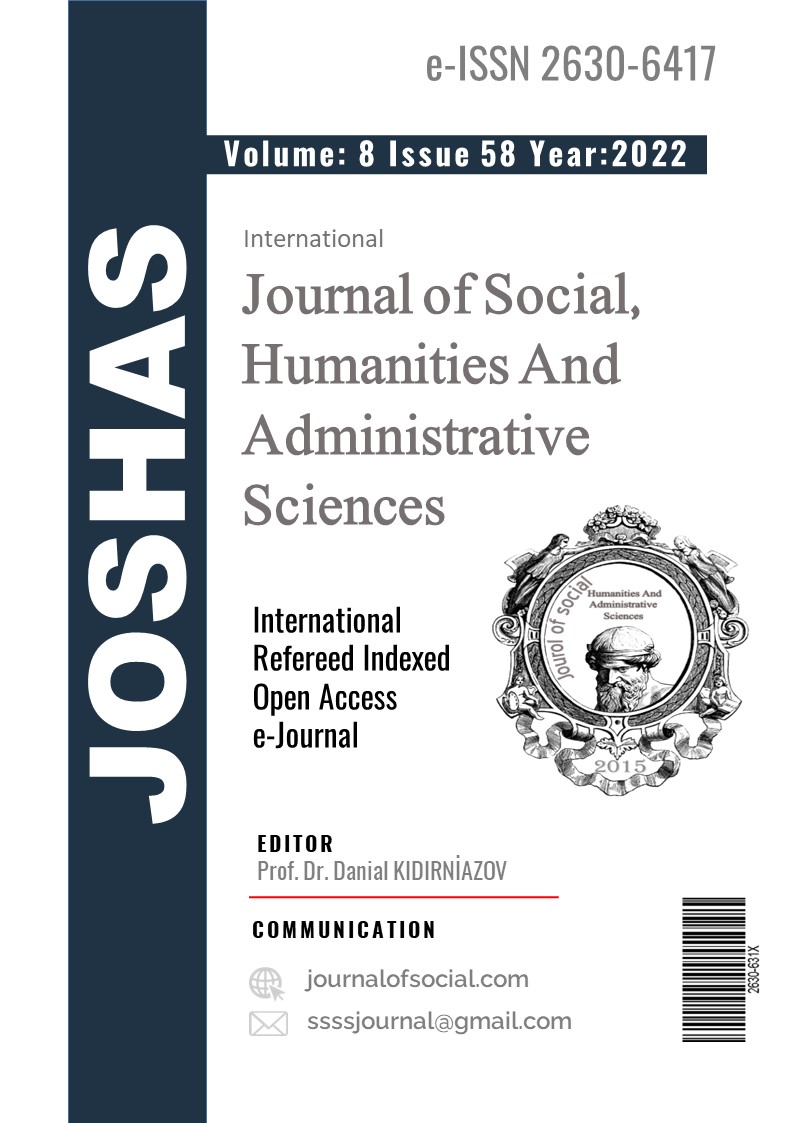Author :
Abstract
Alternatif medya çeşitlilik ve ilişkisellik kuramı bağlamında, topluluğa hizmet, ana akımın alternatifi olmak, sivil toplum ile ilişkisi ve rizom kavramı ile kuramsallaştırılmaktadır. Bu çalışmada Bailey ve diğerleri tarafından oluşturulan, dörtlü alternatif medya kuramı temelinde alternatif medyanın sivil toplum ile olan ilişkisi değerlendirilmektedir. Sivil toplum kavramının tarihsel süreç içerisinde içerdiği farklı anlamlar ile sivil toplumun günümüzdeki anlamı ve demokrasi için önemi tanımlanmaktadır. Alternatif medyanın sivil toplum kavramı ile olan karşılıklı ilişkisi ortaya koyularak, alternatif medyanın demokrasinin oluşup gelişmesinde sahip olduğu özellik ve işlevler değerlendirilmektedir. Alternatif medya, sivil toplum içerisinde yer alan bir unsur olarak görülmektedir. Sivil toplum alanı içerisinde yer alan alternatif medya bu alanın sahip olduğu, çoğulculuk, katılımcılık ve şeffaflık gibi özelliklere de sahip olmalıdır, bu özellikler aynı zamanda sivil toplum alanı ile özdeşleşen özellikler olarak var olmaktadır. Çalışmada Gramsci ve Habermas’ın ortaya koydukları sivil toplum kuramları ile alternatif medya kavramı ilişkilendirilmiştir. Bu bağlamda alternatif medyanın sivil toplumun bir parçası olarak işlev gördüğü ve onu geliştirdiği, demokratik ilerleme için önemli bir role sahip olduğu ve bunun da sivil toplum alanı ile olan önemli bir ilişki içerisinde gerçekleşebileceği sonucu göz önüne serilmektedir.
Keywords
Abstract
Alternative media is theorized in the context of diversity and relationality theory, serving the community, being an alternative to the mainstream, its relationship with civil society and the concept of rhizome. In this study, the relationship between alternative media and civil society is evaluated based on the quaternary alternative media theory created by Bailey et al. The different meanings of the concept of civil society in the historical process and the current meaning of civil society and its importance for democracy are defined. By revealing the interrelationship of alternative media with the concept of civil society, the features, and functions of alternative media in the formation and development of democracy are evaluated. Alternative media is seen as an element in civil society. Alternative media in the field of civil society should also have the characteristics of this field, such as pluralism, participation and transparency, these features also exist as features that are identified with the field of civil society. In the study, the concept of alternative media is associated with the theories of civil society put forward by Gramsci and Habermas. In this context, it is revealed that alternative media functions as a part of civil society and develops it, has an important role for democratic progress, and this can be realized in an important relationship with the field of civil society.
Keywords
- 1. Althusser, L. (2014). İdeoloji ve Devletin İdeolojik Aygıtları. İstanbul: İthaki.
- 2. Anheier, H., Toepler, S., & List, R. (2010). International Encyclopedia of Civil Society. Berlin: Springer.
- 3. Atton, C. (2002). Alternative Media. California: SAGE
- 4. Bailey, O., Cammaerts, B., & Carpentier, N. (2008). Understanding Alternative Media. Open University Press.
- 5. Couldry, N. (2003). Beyond the hall of mirrors? Some theoretical reflections on the global contestation of media power. pp. 39-54.
- 6. Çilingir, L. (2009). Locke’un Toplum Sözleşmesi Kuramı. Temâşâ Felsefe Dergisi(11), 31-43.
- 7. Deleuze, G., & Guattari, F. (1987). A Thousand Plateaus. Minneapolis: The University of Minnesota.
- 8. Edwards , M. (2011). Introduction. In M. Edwards, The Oxford Handbook of Civil Society (p. 515). London: Oxford University Press.
- 9. Ekici, E. (2006). Hobbes ve Rousseau: Toplumsal Sözleşme Kuramı. Kaygı Uludağ Üniversitesi Felsefe Dergisi, 78-89.
- 10. Kaynar, M. (2005). Sivil toplumun Kavramsal Tarihi ve Sivil Toplumla İlgili Güncel Tartışmalar. HacettepeÜniversitesi İktisadi ve İdari Bilimler Fakültesi Dergisi, 339-369.
- 11. Kazancı, M. (2006). Althusser, ideoloji ve ideoloji ile ilgili son söz. İstanbul Üniversitesi İletişim Fakültesi Dergisi, 64-93.
- 12. Kocka, J. (2004). Civil society from a historical perspective. European Review, 12(1), 65-79.
- 13. Kopstein, J., & Chambers, S. (2006). Civil Society and The State. In J. Dryzek, B. Honig, & A. Phillips, The Oxford Handbooks of Political Science (p. 883). New York: Oxford University Press.
- 14. Kymlicka, W., & Chambers, S. (2002). Alternative Conceptions of Civil Society. Nevw Jersey: Princeton University Press.
- 15. Lewis, P. (1993). Approach To The Alternative Media Impact Study. Alternative Media: Linking Global and Local, pp. 11-25.
- 16. Santana, M., & Carpentier, N. (2010). Mapping the rhizome. Organizational and informational networks of two Brussels alternative radio stations. Telematics and Informatics, 27, 162-176.
- 17. Yetiş, M. (2003). Marx ve Sivil Toplum. Praxis, 35-72.
- 18. Yetiş, M., & Halifeoğlu, M. (2013). Gramsci, Sivil Toplum-Devlet İkiliği ve Kuramsal Kökenler. Mülkiye Dergisi, 37(1), 163-188.
- 19. Yıldırım, M. (2003). Sivil Toplum ve Devlet. Cumhuriyet Üniversitesi Sosyal Bilimler Dergisi, 226-242.





